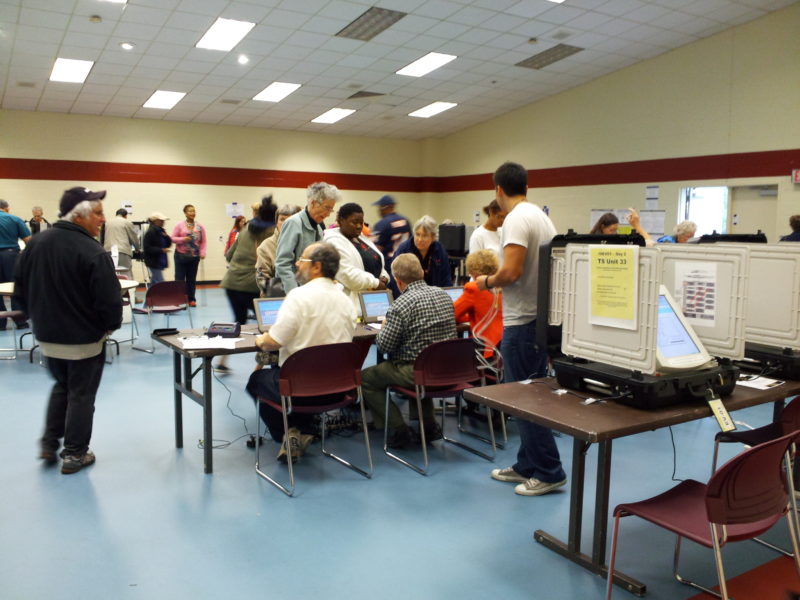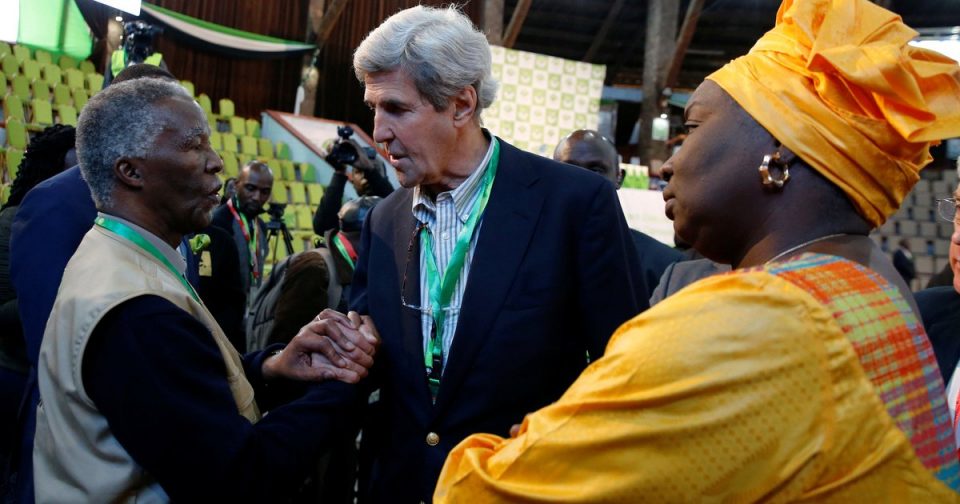
Today is election day in the United States. As polls open, over 93 million have already voted nationwide. Despite the high turnout, there are serious concerns about electoral malfeasance, including voter intimidation, election rigging, and threats of political violence.
One strategy that governments can employ to improve the credibility of an election—and deter both electoral malfeasance and public concerns about it—is permitting, and even encouraging, the presence of independent election observers. An example is the observation mission to Liberia in the aftermath of the civil war, made famous by The Carter Center. Election observers evaluate the entire electoral process: before election day, expert and long-term observers assess election laws, registration, and political campaigns, and watch how media coverage and broader insecurity might shape the election. On election day, observers monitor voting and counting. In the days and weeks following the election, they evaluate tabulation, any disputes, and the certification of the final results.
ADVERTISEMENT

Election observation missions are now a widespread political phenomenon. The Organization for Security and Cooperation in Europe (OSCE) is the leading international election observation body, but others include the International Republican Institute, the National Democratic Institute, the Organization of American States, the African Union, and the Carter Center’s Democracy Program. While most academic research on election observations focuses on their role in promoting democracy in Africa, eastern Europe, and other emerging democracies, OSCE and others also deploy to ostensibly consolidated democracies.
Several studies suggest that election observers can deter electoral fraud and violence (see here, here, here, here) while others suggest that they merely displace cheating or alter the form of violation (see here, here, here). They may, for example, prevent some violations such as stuffing ballot boxes, but inadvertently cause incumbents to resort to other strategies to maintain control. Still others argue that these seemingly democratic tools can be coopted to strengthen authoritarian rule.
In the US, although many Americans don’t realize it, there is a limited election observation mission monitoring the polls. The OSCE international monitors, from the Office for Democratic Institutions and Human Rights (ODIHR), were invited by the US government after a need-based assessment by ODIHR this summer recommended sending 500 observers to monitor the election, which it said would be “the most challenging in recent decades.” The ODIHR mission will evaluate whether the election upholds international obligations and standards for democratic elections.
Today, these monitors will visit a limited number of polling stations; they will not conduct a systematic observation of voting, counting, or tabulation of results, however. In America, election observers are regulated by state law. Three states explicitly allow international observers to monitor the polls; four others have inclusive statutory language allowing many types of observers; 11 states explicitly ban election observers; and the remainder leave the issue to the discretion of local election officials. After the election ODIHR will publish two reports summarizing their findings and make recommendation for improvements.
The monitors have already noted the “high degree of polarization and political division, which have been significantly impacted by the COVID-19 pandemic.” The ODIHR monitors have also expressed “grave concerns about the risk of legitimacy of the elections being questioned due to the incumbent President’s repeated allegations of a fraudulent election process, and postal vote in particular.”
Americans themselves are highly concerned that political violence, voter intimidation, and election rigging will potentially affect the election. In our national quota-based survey of about 3,500 individuals living in the US, we asked people how concerned they are about the integrity of the presidential election. Our study shows that Americans are very concerned: 80 percent of respondents are worried that political violence will affect the election; 74 percent are concerned the poll will be affected by voter intimidation or suppression; 74 percent are worried that the election might be rigged; and 71 percent believe that the election will not be free or fair.
Do Democrats and Republicans differ? Strikingly, the majority of respondents across parties express worries about the integrity of the election. Democrats are more likely to say they are worried about voter intimidation and suppression. Republicans are more likely to express concerns about election rigging. (There is not a statistically significant difference between Republican and Democrat perceptions of political violence or concerns that the election will not be free or fair.)
In the face of these concerns, do American voters support deploying international election monitors? In our research—we gave respondents different scenarios and asked them to provide their level of support for election monitors based on those scenarios—we found that most respondents (about 70 percent) support the idea of deploying election observers to monitor the polls. However, we also found strong partisan effects depending on who endorsed the intervention. Among Democrats, Biden’s endorsement increased support for deploying monitors, while Trump’s endorsement decreased it. Among Republicans, Biden’s endorsement decreased support for monitors, but Trump’s endorsement had no effect. Interestingly, whether the international organization supported the intervention had no effect on support for deploying monitors.
Americans are highly concerned about this election, and scholars and practitioners have generally assumed that impartial, credible election observers—like those deployed across the United States today—can help to shape (positive) perceptions about the quality and legitimacy of electoral processes. While many US voters support the idea of deploying monitors to safeguard the election, many still exhibit partisan preferences. Indeed, our findings suggest that Americans consider election observers another possible political tool that their partisan rivals can use to achieve office. This highlights a potential limit in the role of election observers as perceptions of bias or lack of support from a candidate can undermine citizens’ confidence in the credibility of the election monitors and confidence in the broader election process.
As one of the oldest democracies, the “democratic experiment” that is the United States has faced challenges before. In the coming days, it faces yet another, as many voters go to cast their ballot believing that the presidential election will be neither free nor fair. What’s most worrying to us is that one potentially powerful tool used to address these concerns already appears to be undermined by partisan attitudes.
Travis Curtice is the Niehaus Postdoctoral Fellow at the Dickey Center for International Understanding at Dartmouth College. He has observed elections in Kenya, Liberia, and Nepal with The Carter Center. Charles Crabtree is an Assistant Professor in the Department of Government at Dartmouth College.
Before it’s here, it’s on Political Violence at a Glance
Statements, comments or opinions published in this column are of those of the author(s) and do not necessarily reflect the editorial policy of Warsan magazine. Warsan reserves the right to moderate, publish or delete a post without prior consultation with the author(s). To publish your article or your advertisement contact our editorial team at: warsan54@gmail.com

